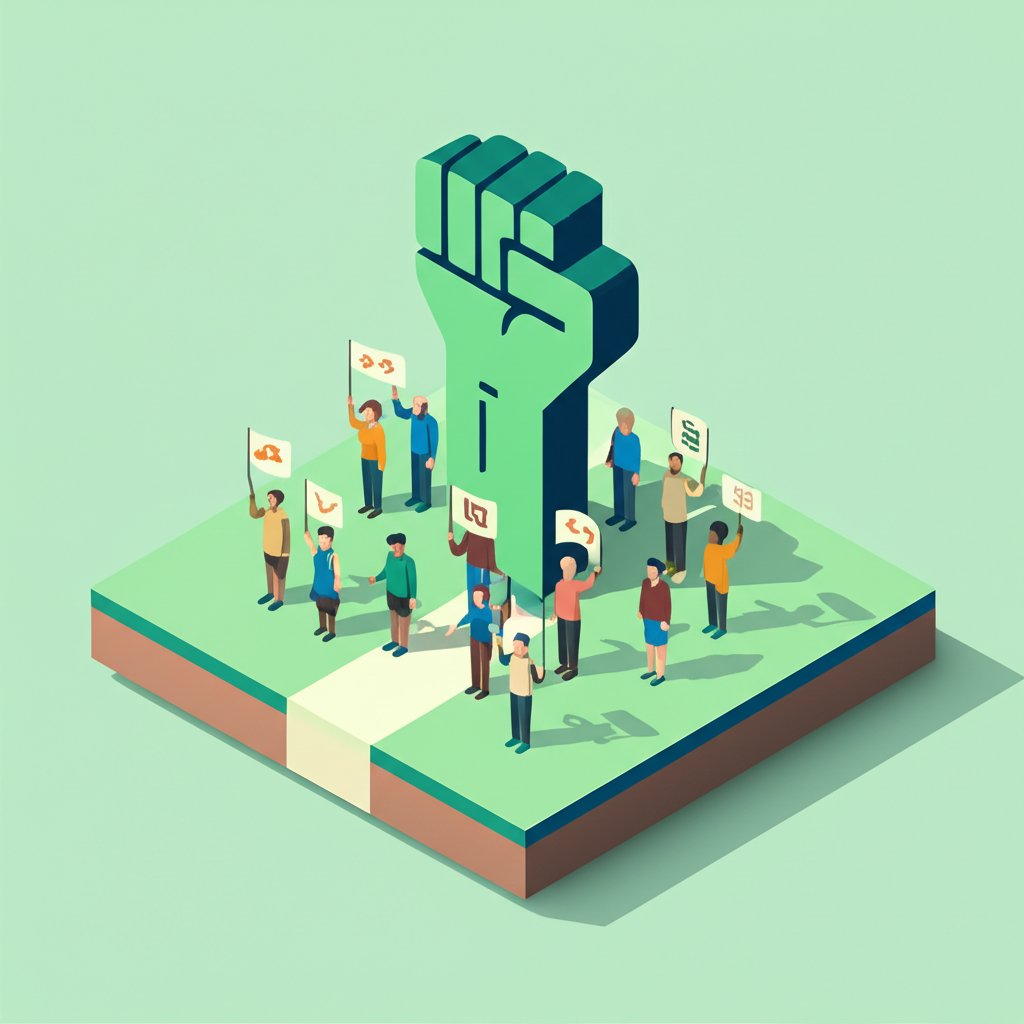Every significant leap in human progress, every stride towards a more just and equitable world, can be traced back to the courage and conviction of pioneering activists. These remarkable individuals and groups stand at the vanguard, challenging entrenched norms, advocating for the marginalized, and ultimately igniting profound societal shifts. Their inspiring stories are not just historical footnotes; they are blueprints for social change, reminding us of humanity’s incredible capacity to evolve. However, the relentless pursuit of justice often comes at a steep personal cost, making activist well-being a critical, yet frequently overlooked, component for sustainable and effective long-term impact. This article delves into the legacies of those who carved new paths, examines the forces driving their transformative work, and crucially, explores how nurturing the well-being of changemakers is paramount to the continued success of any movement.
The Unwavering Spirit of Pioneering Activists Driving Societal Shifts
History’s tapestry is woven with threads of defiance, resilience, and unwavering hope, all spun by pioneering activists. These are the visionaries who see beyond the present, daring to imagine a better future and then working tirelessly to build it. They are the initial sparks that ignite widespread movements, catalyzing societal shifts that reshape cultures, laws, and collective consciousness.
Defining Pioneers: Beyond the Headlines
A pioneering activist is more than just a public figure; they are someone who introduces new methods, ideas, or principles. They often operate on the fringes, challenging the very foundations of the status quo, even when faced with overwhelming opposition. Their work might not always be immediately recognized or celebrated; sometimes, their true impact is only appreciated generations later. They are characterized by their moral courage, strategic foresight, and an unshakeable belief in a cause larger than themselves. These individuals don’t just participate in social change; they initiate it.
Historical Echoes: Catalyzing Major Social Change
From ancient philosophers questioning power structures to modern-day environmental defenders, pioneering activists have consistently been the architects of progress. Their diverse struggles highlight universal themes of justice, equality, and human dignity.
- The Abolitionist Movement: Figures like Frederick Douglass, Harriet Tubman, and Sojourner Truth didn’t just advocate for the end of slavery; they actively dismantled its moral and legal justifications through powerful oratory, direct action, and the Underground Railroad. Their efforts were instrumental in the monumental
societal shiftof abolishing slavery in the United States. - The Labor Rights Movement: Early labor organizers like Mother Jones fought for safer working conditions, fair wages, and the right to unionize, often facing brutal repression. Their persistence led to fundamental
social change, establishing protections that workers worldwide now take for granted, from the eight-hour workday to child labor laws. - The Disability Rights Movement: Pioneers such as Ed Roberts and Judith Heumann championed the independent living movement, demanding accessibility and inclusion for people with disabilities. Their “nothing about us without us” philosophy led to significant
societal shiftsin legislation and public perception, paving the way for acts like the Americans with Disabilities Act.
These inspiring stories demonstrate that societal shifts are rarely accidental; they are the deliberate outcome of consistent, courageous action by pioneering activists.
The Mechanics of Social Change: How Activists Reshape Society
Understanding how pioneering activists achieve their goals requires examining the intricate mechanics of social change. It’s a process that involves mobilizing people, influencing policy, and fundamentally altering public discourse.
From Vision to Movement: Igniting Collective Action
Individual vision, no matter how profound, only becomes social change when it transforms into collective action. Pioneering activists possess a unique ability to articulate a compelling vision that resonates with broader societal grievances or aspirations. They convert abstract ideals into tangible demands, providing a roadmap for others to follow. This often involves:
- Awareness and Education: Shining a light on injustices that are ignored or normalized.
- Framing the Issue: Crafting narratives that connect with people’s values and emotions.
- Coalition Building: Uniting diverse groups under a common banner, amplifying their collective voice.
For example, the student activists who initiated the sit-in movement during the Civil Rights Era demonstrated the power of non-violent direct action to expose segregation’s absurdity and galvanize national support.
Strategic Advocacy: Navigating Resistance and Building Consensus
The path to social change is rarely smooth. Pioneering activists are often met with fierce resistance from those who benefit from the status quo. To overcome this, they employ a range of strategic advocacy tools:
- Public Protest and Demonstration: Drawing media attention and demonstrating public resolve.
- Lobbying and Policy Influence: Directly engaging with lawmakers and decision-makers to propose and enact new legislation.
- Legal Challenges: Utilizing the justice system to overturn discriminatory laws or practices.
- Cultural Shifts: Influencing art, media, and popular culture to normalize new ideas and challenge stereotypes.
The protracted struggle for women’s suffrage, spearheaded by pioneering activists like Emmeline Pankhurst, involved decades of strategic campaigns, from peaceful petitions to public demonstrations and even civil disobedience. Her “Deeds Not Words” mantra underscored the necessity of direct, impactful action to force societal shifts.
Enduring Impact: How Societal Shifts Become Permanent
True societal shifts are not merely temporary victories; they are fundamental, often irreversible, transformations in how society functions. Pioneering activists work to embed their changes deeply into legal frameworks, institutional practices, and cultural norms. This institutionalization ensures that the advancements gained are protected and continue to evolve. This transition from protest to policy, and from policy to accepted societal practice, is the ultimate measure of successful social change. Without the sustained pressure and innovative strategies of these trailblazers, many of the liberties and rights we enjoy today would not exist.
Inspiring Stories of Transformation: Voices That Sparked a Revolution

The individual journeys of pioneering activists serve as potent inspiring stories, demonstrating the extraordinary impact one person, or a dedicated group, can have. Their courage in the face of adversity, their unwavering commitment to a cause, and their ability to mobilize others are testaments to the power of human spirit in driving social change.
Malala Yousafzai: Education’s Unstoppable Voice
Malala Yousafzai, the Pakistani activist, transformed a personal tragedy into a global movement. Shot for advocating for girls’ education, her survival and subsequent determination became a powerful symbol. Instead of retreating, Malala amplified her voice, co-founding the Malala Fund to ensure every girl has the right to learn. Her inspiring story garnered international attention, leading to her becoming the youngest Nobel Peace Prize laureate. Malala’s journey shows how extreme personal sacrifice can galvanize societal shifts by drawing the world’s gaze to fundamental human rights, and her resilience implicitly highlights the importance of inner fortitude for activist well-being.
Harvey Milk: Championing Visibility and Rights
Harvey Milk’s election as the first openly gay official in California’s history was a beacon of hope for the LGBTQ+ rights movement. His charismatic leadership and a platform built on equality and hope challenged the prevailing prejudices of his time. Milk’s strategic approach to politics involved building diverse coalitions, understanding that the fight for gay rights was intertwined with the struggles of other marginalized groups. His enduring call to “come out” empowered countless individuals, making the invisible visible and paving the way for massive societal shifts in LGBTQ+ acceptance and legal rights, even after his tragic assassination. His legacy is an inspiring story of political courage and community building.
Marsha P. Johnson and Sylvia Rivera: Paving the Way for Trans Rights
While many pioneering activists are celebrated, some operate at the grassroots, their contributions often overlooked. Marsha P. Johnson and Sylvia Rivera, self-identified drag queens and trans women of color, were central figures in the Stonewall Uprising and co-founded the Street Transvestite Action Revolutionaries (STAR). They tirelessly advocated for homeless LGBTQ+ youth, particularly trans youth, ensuring they had shelter and support. Their defiant presence and unwavering commitment to the most marginalized within their community were pivotal in the early days of the gay liberation movement, sparking crucial social change by demanding inclusion for all, and offering inspiring stories of fierce self-advocacy and care.
Greta Thunberg: Mobilizing a Generation for Climate Action
A contemporary example, Greta Thunberg, ignited a global movement for climate action through her solitary “School Strike for Climate” in front of the Swedish parliament. Her clear, uncompromising message about the urgency of climate change resonated with millions of young people worldwide, leading to massive global protests. Greta’s inspiring story demonstrates how a single individual, armed with conviction and a powerful message, can challenge global leaders and initiate a profound societal shift in how climate change is perceived and addressed, pushing for concrete social change policies.
These inspiring stories are not just tales of the past; they are living testaments to the power of commitment and the potential within each of us to contribute to social change.
Nurturing the Flame: Prioritizing Activist Well-being for Sustainable Change

While the inspiring stories of pioneering activists rightly focus on their external impact and the societal shifts they wrought, it’s crucial to address an often-neglected aspect of their work: activist well-being. The demanding, often traumatizing, nature of advocacy can lead to burnout, compassion fatigue, and mental health challenges, ultimately hindering the very social change they strive to achieve. Sustainable activism requires a deliberate focus on self-care and community support.
The Hidden Costs of Activism: Burnout and Compassion Fatigue
Activists frequently expose themselves to trauma, both directly and indirectly. They witness injustice, fight constant battles, and often face threats, criticism, and emotional exhaustion. This continuous stress takes a heavy toll, manifesting as:
- Burnout: A state of emotional, physical, and mental exhaustion caused by prolonged or excessive stress. It leads to reduced productivity and a sense of hopelessness.
- Compassion Fatigue: The emotional and physical exhaustion experienced by those who care for others, often characterized by a decreased capacity for empathy and professional detachment.
- Moral Injury: The psychological distress that results from actions, or lack of actions, that violate one’s own moral beliefs.
Without addressing these hidden costs, even the most dedicated pioneering activists risk losing their effectiveness and abandoning their vital work. Protecting activist well-being is not a luxury; it is a strategic imperative for sustained social change.
Essential Self-Care Strategies for Changemakers
Prioritizing activist well-being is a proactive measure that empowers individuals to sustain their efforts and continue driving societal shifts. Here are actionable strategies:
- Mindfulness and Self-Awareness: Regularly checking in with one’s emotional and physical state. Practices like meditation, journaling, or simply taking quiet moments can help activists recognize early signs of stress and respond proactively.
- Building Supportive Communities: Activism can be isolating. Creating strong networks of peer support, where experiences and challenges can be shared without judgment, is vital. This fosters resilience and a sense of shared purpose.
- Setting Boundaries and Rest: The fight for
social changecan feel endless, but activists must learn to set limits on their work. This includes scheduling regular breaks, disconnecting from digital activism, and prioritizing adequate sleep. Rest is not a reward; it’s a necessary component of effective action. - Seeking Professional Support: Recognizing when professional help (therapy, counseling) is needed is a sign of strength, not weakness. Mental health professionals can provide tools and strategies for coping with the unique stressors of activism.
- Engaging in Joy and Hobbies: Remembering to engage in activities that bring joy and a sense of purpose outside of activism helps to replenish energy and maintain a broader perspective on life.
Organizations Championing Well-being in the Social Sector
A growing number of organizations recognize that activist well-being is fundamental to effective social change. The Wellbeing Project, for instance, has been instrumental in sparking global conversations and action on the importance of inner well-being for social impact leaders. They highlight how developing self-awareness and self-care practices among change-makers can enhance their resilience, creativity, and collaborative capacity, leading to more impactful and sustainable societal shifts. Supporting and replicating such initiatives is crucial for the future of all social movements.
By integrating well-being practices into the fabric of activism, we empower pioneering activists to sustain their efforts, ensure the longevity of their movements, and ultimately, guarantee the continued progress of social change.
Conclusion
The enduring legacy of pioneering activists is etched into the very fabric of our world. Their inspiring stories illuminate the pathways to profound societal shifts and underscore the innate human capacity for social change. From challenging injustices to championing the rights of the marginalized, these visionaries have consistently pushed the boundaries of what is possible, leaving an indelible mark on history.
However, the relentless pursuit of a better world comes with significant personal demands. It is imperative that we recognize and actively support activist well-being as a core component, not an afterthought, of any successful movement. By nurturing the inner strength and resilience of these changemakers, we ensure their continued effectiveness, prevent burnout, and foster a more sustainable approach to advocacy.
Let the inspiring stories of the past be a call to action for the present. Let us not only celebrate the impact of pioneering activists but also commit to safeguarding their well-being, for in their sustained strength lies the promise of a more just, equitable, and compassionate future for all.
FAQ
Q1: What defines a pioneering activist?
A pioneering activist is an individual or group who introduces new ideas, methods, or principles to challenge existing societal norms, advocate for a cause, and initiate significant social change. They often face considerable opposition and their work may not be fully recognized until long after their initial efforts. They are the trailblazers who carve new paths for progress.
Q2: How do societal shifts begin, and what role do activists play?
Societal shifts often begin when pioneering activists identify a systemic injustice or unmet need and articulate a compelling vision for change. They play a crucial role by raising awareness, mobilizing public support, developing strategic campaigns (including protests, lobbying, and legal challenges), and persistently demanding attention from decision-makers. They transform individual vision into collective action, ultimately reshaping laws, policies, and cultural attitudes.
Q3: What are common challenges faced by pioneering activists?
Pioneering activists frequently face numerous challenges, including resistance from powerful institutions, public criticism, threats, legal repercussions, financial instability, and emotional and physical exhaustion. The constant exposure to injustice and the demands of advocacy can lead to burnout, compassion fatigue, and significant mental health struggles, underscoring the vital importance of activist well-being.
Q4: Why is activist well-being crucial for the success of social change movements?
Activist well-being is crucial because sustained social change requires sustained effort. Without prioritizing self-care, mental health, and community support, activists are highly susceptible to burnout and compassion fatigue, which can diminish their effectiveness, lead to disengagement, and ultimately harm the movement’s long-term goals. Nurturing well-being fosters resilience, creativity, and the collaborative spirit needed to navigate the demanding journey of social change.
Q5: Can an individual truly make a difference in driving social change?
Absolutely. The inspiring stories of pioneering activists throughout history unequivocally demonstrate that individuals can, and do, make a profound difference in driving social change. While collective action is essential for widespread societal shifts, one person’s courage, vision, and unwavering commitment can often be the catalyst that ignites a larger movement and inspires countless others to join the cause.










